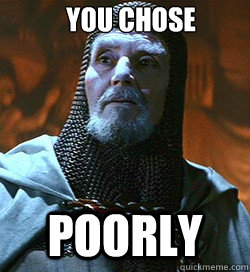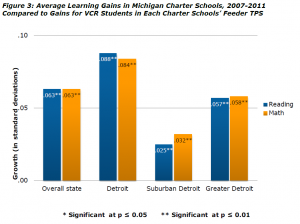 News & Observer Editorial Board
News & Observer Editorial Board
There is a right way to criticize school choice programs and a wrong way. The News & Observer in Raleigh, N.C. chose poorly. While arguing against vouchers for low-income students, the editorial board wrote,
“Advocates hailed this “opportunity scholarship” program as a way to help poor families, a group Republicans have shown little interest in otherwise. But in this case, those families are a convenient political tool for conservatives …”
 Really? Arguing that low-income people are tools if, and only if, they ally with your political opponents, sounds a bit elitist and entitled. Progressives do not own a monopoly on serving the interests of disadvantaged families (and frankly, believing that conservatives never care about the poor demonstrates a sophomoric understanding of politics). If the current education model doesn’t work, low-income families are under no obligation to support a side that wants to maintain the status quo.
Really? Arguing that low-income people are tools if, and only if, they ally with your political opponents, sounds a bit elitist and entitled. Progressives do not own a monopoly on serving the interests of disadvantaged families (and frankly, believing that conservatives never care about the poor demonstrates a sophomoric understanding of politics). If the current education model doesn’t work, low-income families are under no obligation to support a side that wants to maintain the status quo.
Besides, this isn’t a Democrat vs. Republican issue. Democrats in North Carolina are already joining forces to support school choice programs throughout the state.
Grade: Needs Improvement
 Andrew Coulson
Andrew Coulson
Critics of school choice have been pummeling Sweden for the last year as if it was some sort of smoking gun that proves vouchers don’t work. Two things are at play: Sweden has universal school choice. And among other developed nations, it has seen some of the sharpest declines in international test scores.
Some very simplistic analyses, including a recent Slate article by an economist at Columbia, saw the correlation and concluded private schools and school choice were at fault.
Not so fast. That conclusion turns out to be the result of some bad research methods: correlation is not causation.
Andrew Coulson over at the Cato Institute explores what is going on in Sweden. Given the evidence, you can’t blame school choice and private schools for the slide in test scores. For one, only 14 percent of the nation’s students actually attend private schools – that isn’t much more than here in the U.S. Next, the largest declines actually occurred in Swedish public schools, not private schools.
Something is going on in Sweden’s schools, but school choice probably isn’t the culprit.
Grade: Satisfactory
Steven Cook, president of the Michigan Education Association
Opponents of educational choice, like Steven Cook, president of the Michigan Education Association, like to conduct blanket comparisons between charter and traditional public schools. But this type of comparison doesn’t take into account differences between schools, like the student populations.
What if one sector served more low-income or minority students? What if one served more students who already started out further behind the others? Direct comparisons between school types that don’t consider those differences are off base, yet some of the media in Michigan keep making them while allowing those with skin in the game to continually flog it.
As it turns out, when attempting to control for such things as student race and income, charter schools in the state tend to perform slightly better than traditional public schools. In Detroit, the charter school advantage is even bigger.
So while Michigan’s charter schools may have some troubles with bad actors, it hasn’t been a waste of billions of dollars as alleged by the teacher union. In fact, according to a recent study from the University of Arkansas, Michigan is actually getting a positive “bang for the buck” from its charter schools.



